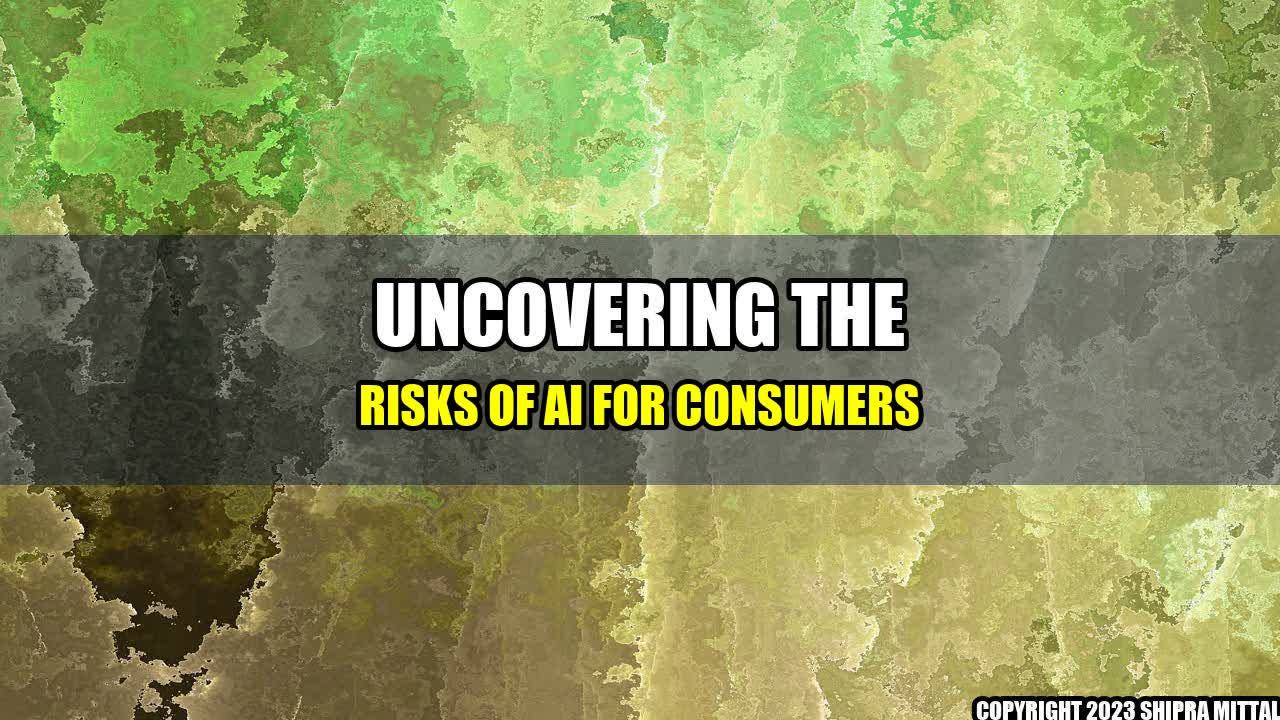Imagine this: Your purchase history suggests you're a fan of barbeque sauce, so a major retailer's AI system suggests you try a new, organic brand. Thrilled that technology knows you better than you know yourself, you add the sauce to your cart. But when it arrives, you realize it contains peanuts, which could be deadly to you or someone else in your household with a peanut allergy. You realize that AI isn't always something to rely on.
Artificial intelligence has taken over our daily lives, from targeted ads on social media to personalized recommendations on online shopping platforms. However, as AI continues to advance, there is a growing concern about its impact on consumers. The UK Competition and Markets Authority (CMA) recently launched a competition probe into AI consumer risks, following concerns that AI may be causing trust issues among consumers and could be leading to unfair business practices in the technology sector.
The investigation will examine how firms collect and use consumer data, and how AI-powered decisions can harm the most vulnerable members of society, including those with disabilities, mental health issues, and financial instability. The CMA will also explore how businesses can be incentivized to operate fairly and transparently, without restricting innovation and development in the field of AI.
The probe has raised concerns about the practices of major tech companies such as Amazon and Google, which heavily rely on AI algorithms to provide personalized recommendations and targeted ads. While AI may be efficient and effective in certain situations, it is not always fool-proof.
Real-Life Examples
One of the most notable incidents involving AI occurred in 2018, when Amazon was forced to scrap an AI recruitment tool that showed bias against women. The tool was designed to scan resumes and rate candidates but was found to rate candidates with terms such as "women's" and "female" lower than male candidates. This is an example of how AI systems can exhibit bias and perpetuate discrimination, even if unintentional.
In another example, a BBC investigation found that facial recognition systems used by London's Metropolitan Police were inaccurate up to 98% of the time. These systems have been criticized for their potential to wrongly accuse innocent people and for racial biases in their algorithms. The investigation has led to calls for greater transparency and accountability in the use of AI-powered surveillance technologies by the police.
Conclusion
- The investigation by the UK CMA highlights the need for increased scrutiny of AI systems to prevent potential harm to consumers, particularly the most vulnerable ones.
- Tech companies should prioritize transparency and accountability when designing and deploying AI algorithms.
- Critical discussions on the ethics of AI are necessary to ensure fairness and safeguard against biased decision-making, social profiling, and discrimination.

Akash Mittal Tech Article
Share on Twitter Share on LinkedIn